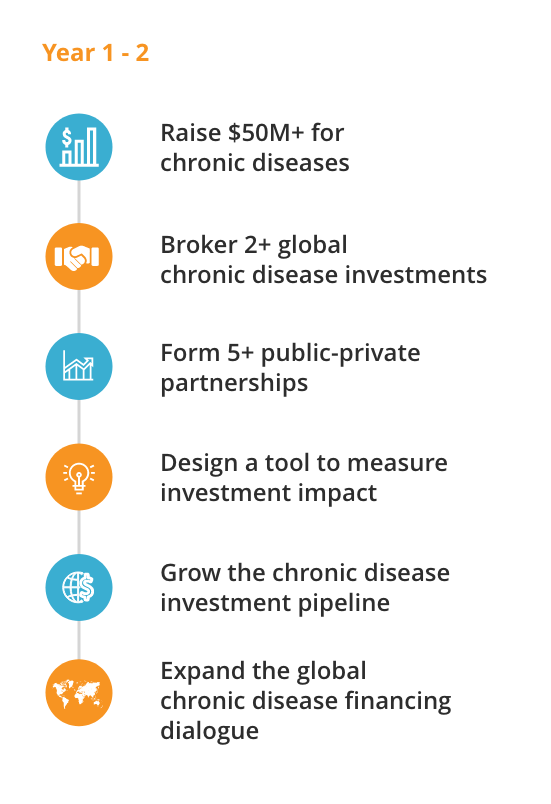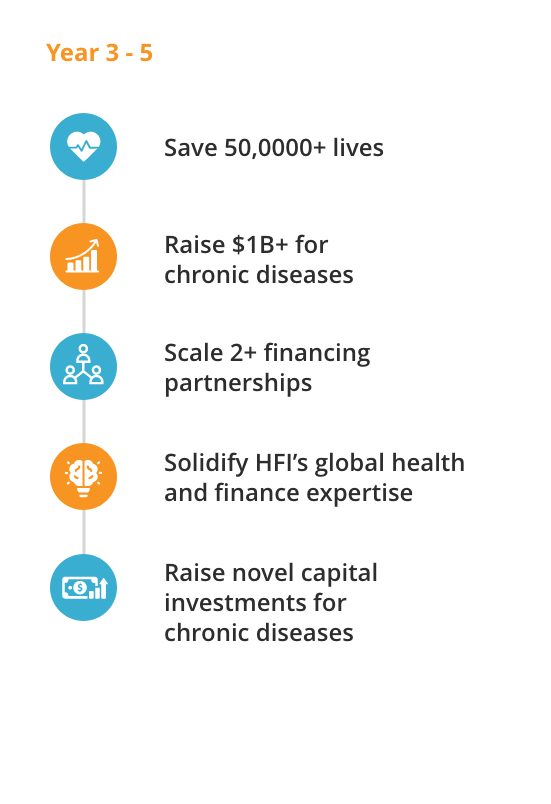
Analyze
Translate highest impact interventions into return-positive investments.

Translate highest impact interventions into return-positive investments.

Use data and evidence, combined with financing expertise, to design innovative finance vehicles.

Forge blended finance investments through public-private partnerships to address the global health and chronic disease gap.

Increase investments in health and NCDs worldwide.


We analyze and translate evidence to inform and catalyze investments towards the world’s deadliest health conditions. We partner directly with implementers, funders, and financial institutions to develop tailored financing solutions to maximize health and financial impact. Our focus is on investments in the prevention, access, and adherence of chronic disease management. We increase capital investments in global health to foster economic, social, and health gains in the short and long term.
We offer expertise in global health, economics, and blended finance. We closely partner with the private sector, national and regional governments, financial institutions and partners, and international organizations.
Non-communicable diseases, also often called chronic conditions, are largely made up of the following disease groups:
Together, chronic conditions are responsible for over 50% of deaths and over 60% of the disease burden in developing countries.
There are many myths and misperceptions about NCDs:
Nobody Chooses Disease.
NCDs stem from a range of environmental, biological, and societal factors. Their causes include genetic, environmental, and societal risk factors and determinants.
